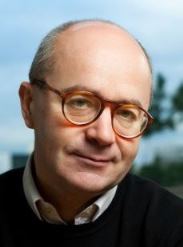
| Speaker | Prof. Christophe Lécuyer, Professor of the History of Science and Technology at Université Pierre et Marie Curie |
|---|---|
| Time | June 13, 2016 6:15pm - 7:45pm (Doors open at 5:55pm) |
| Venue | National Graduate Institute for Policy Studies, 4th Floor, Room 4A (ACCESS) |
| Sponsor | GRIPS Innovation, Science and Technology Policy Program (GIST) |
| Language | English |
| Fee | Free (Pre-registraion required) |
In this talk, the speaker will review his work on the formation of Silicon Valley (1930s-1970s) from a policy perspective. He will also discuss two new research projects : the environmental history of Silicon Valley (1970s-1999s) and the evolution of Moore's Law. He will focus especially on Moore's Law as a managerial and governance tool and on the current breakdown of the International Technology Roadmap for Semiconductors.
 grips.ac.jp. Registration email must include:
1) your name*, 2) institution*, 3) job title, and 4) contact information (email address or phone number)*.
grips.ac.jp. Registration email must include:
1) your name*, 2) institution*, 3) job title, and 4) contact information (email address or phone number)*.